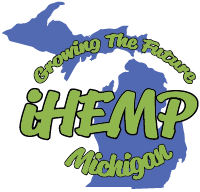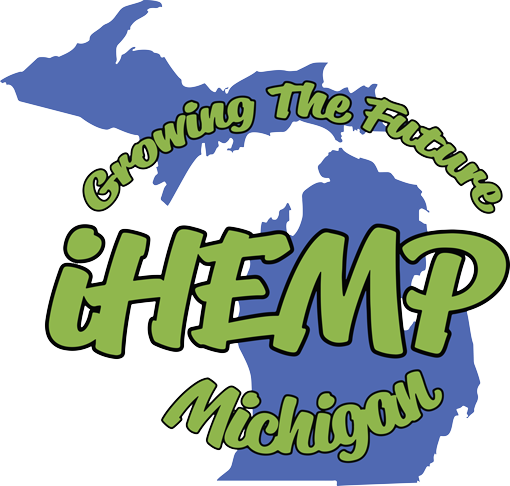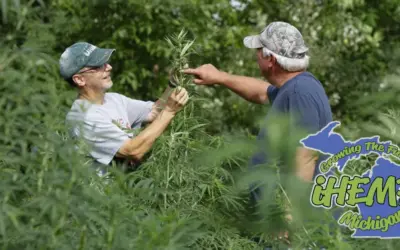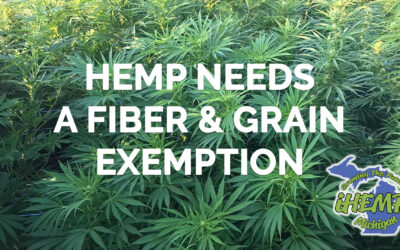Media Roundtable in Lansing Launches Conversations
Leaders discuss 2019 Michigan hemp crop
Michigan growers and manufacturers declare 2019 successful learning opportunity
The leading statewide trade association representing industrial hemp today hosted a roundtable to review Michigan’s pilot hemp season and discuss the highs and lows of the state’s newest agricultural commodity.
The roundtable, hosted by iHemp Michigan, featured regulators, farmers, processors and product manufacturers representing just a few of the many uses for industrial hemp – ranging from CBD oil to high-tech plastics.
“Michigan is ready to be a national player in the industrial hemp products market,” said David Crabill, iHemp communications director. “Michigan is a farming state with a rich manufacturing history, so it was no surprise this year that we saw farmers and entrepreneurs jump at the opportunity to get into industrial hemp around the state.”
Public Act 641 allowed Michigan to operate a pilot season in 2019 as the state – and the nation – await formal guidance from the US Department of Agriculture, which is expected by the end of the year.
In its inaugural season, Michigan’s industrial hemp industry boasted 572 growers, 423 processor/handlers, and 32,614 acres registered to grow industrial hemp.
The media roundtable featured Michigan professionals from each sector who shared their stories and discussed what they see looking ahead.
Dave Connor, of Paw Paw Farms, said his company has been involved for decades in growing specialty crops in Michigan, but they still encountered surprise challenges when they planted hemp this year.
“Many people said this would be easy – throw some seed on the ground and it would grow like weeds,” he said. “But doing it right is a lot more complicated than that – everything from planting to watering to harvesting required some careful planning. We learned a lot this season.”
Casey Yosim owns Total Health Co. in Auburn Hills, a hemp processing company making high-quality CBD products. After suffering a spinal injury playing hockey, he discovered CBD as a way to deal with pain. The former construction industry entrepreneur launched Total Health Co. this year to process industrial hemp flower into CBD.
Michael Thue has been working with hemp-based medicines for nearly 20 years. He founded Great Lakes Hemp Supplements to produce medicines that treat sufferers of ailments from arthritis to epilepsy.
Gary Schuler’s company, GTF, developed a revolutionary technology to dry and pulverize organic material – taking apples unfit for market and turning them into flour, for example.
The company began with the goal of “up-cycling” food waste that is important to the food industry. Last year, he found an important niche for his company’s technology to help turn hemp stalks, stem and other historic ‘waste’ portions of the plant into plastic.
“We can turn waste into a totally new product,” he said. “There are places in America today where plastic coffee lids are locally outlawed, cities where single-use plastic containers are no longer welcome. The market is already here for the products we are able to make.”
The industry leaders all agreed that industrial hemp in Michigan has a strong future with farmers, processors, and manufacturers.
“We are grateful to the state of Michigan and our legislative leaders for working through this pilot season,” Crabill said. “iHemp Michigan and its members see exciting times ahead, and we will continue working with the state and the industry to help make Michigan a leader in the hemp-based economy.”





